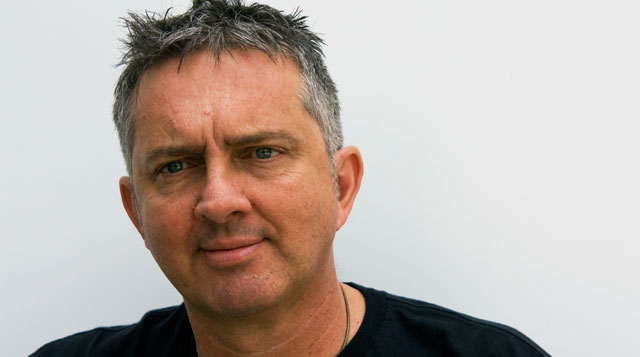
South by Southwest (SxSW, or “South By” as those in the know refer to it) is now in its 20th year of existence, and more than ever the premier gathering for those who work in the interactive, digital arena. Running from 8 t0 17 March, it is being held in Austin, Texas. Austin is touted as the “live music capital of the world”, and that is a claim that certainly holds up during SxSw, when there are around two thousand bands playing.
It is also one of the hipster capitals of the world, especially when the entire Silicon Valley appears to have moved in for the conference, lock, stock and smoking attitude. Personally, I love hipsters, who are the ornate frames that make the drab worldview worth staring at. But when there are so many, getting underfoot like a slew of overexcited yet cool bespectacled puppies, it gets a bit much.
Elon Musk’s keynote address was, if you were in the right mood, an inspiring one for a South African. That a lad from Pretoria can rise to create, and become the chief executive of SpaceX, the first privately funded company to successfully launch, orbit and recover a spacecraft, is a warming thought. Last year, SpaceX’s Falcon 9 rocket carried the unmanned Dragon capsule into space, becoming the first private company to send a spacecraft to the International Space Station. The unmanned capsule became the first privately built and operated vehicle to ever dock with the orbiting outpost.
Along the way, of course, Musk has also been part of the creation of PayPal (sold to eBay for US$1,5bn in stock), and the Tesla company, manufacturers of the Tesla roadster, the first fully electric sports car. He came across as a thoughtful, controlled, slightly detached man, albeit one that appears, strangely, to stage his thinking about questions for which he already knows the answers. (For a complete, and glowing, account of Musk’s talk, read Alistair Fairweather’s column.)
He has a great presence, though, and got a laugh when he repeated his famous quip: “I would like to die on Mars; just not on impact.” But I found it disturbing, at one point, when, in response to a question, he said that it was fine for people to drop out of university. His contention — and I am paraphrasing here — was that you learn everything you needed to know in the first couple of years of a degree, and mostly from the people around you.
According to Musk, he only completed his second bachelor’s degree in physics because he had to qualify for residence in the US. And he did eventually drop out of university, of course, and manage to go on to be moderately successful. Of course, he was engaged in a PhD in applied physics and materials science at the time, which presupposes quite a lot of education happening before he got to make that choice.
I keep hearing South African “entrepreneurs” making the same claim: you do not need an education, you just need an idea, like Steve Jobs, or Bill Gates. Well, first of all, those dudes were/are geniuses, and you’re an idiot. And secondly, they have already been taught to think. Your matric from an average South African high school ain’t going to cut it.
My frustration at this tripe comes from a confluence of events — the first, attending a talk by South Africans Toby Shapshak and Gareth Knight entitled “The $100bn mobile bullet train called Africa”.
Many of the African entrepreneurs and innovators they described were repatriates, returning from educational stints in the developed world. Many — perhaps even the majority — of the success stories owed their genesis to precisely the thing that some smug would-be Silicon Valley Girls pretend does not matter — good education. It hurts that we are not growing more of our own entrepreneurs and ideas people at home, and that the level of education in a place like South Africa is geared to producing people who can barely achieve the ludicrously low percentage that currently masquerades as an indicator of knowledge.
The keynote by Amit Singhal, vice-president at Google, highlighted the difference in attitudes to education of someone from a developing nation (he is from India), and someone who is dumb enough to undervalue an education he or she already has. According to Singhal, he made the choice to carry on studying, with a small stipend a month, when many were advising him to move into business. He spoke about the impact his continuing education had on him. On Wikipedia, there is a quote from him about his university studies. The University of Minnesota, Duluth “was the turning point in my life. Studying Information Retrieval with Don Crouch and then Don recommending that I move to Cornell to study with Gerard Salton, is the main reason behind my success today.”
While tweeting Singhal’s talk, I serendipitously noticed tweets from the Mail & Guardian about a series of photos our education reporter, Victoria John, took while on a tour of the forgotten and deeply neglected schools of the Eastern Cape. Take a look at these, and I defy you to be glib about education.
I don’t think any of the highly successful people, who say that continuing an education isn’t an absolute necessity to get somewhere in life, mean that education is unnecessary. They do mean that there can come a time when you have learnt enough to do something that’s about creating learning, instead of consuming it. Singhal’s vision of the future is one where education is a never-ending process, where Google’s computers will give you the answers to questions you did not know you needed to ask. That is the beauty of education, and seriously, if I hear one more budding entrepreneur crowing about his or her schooling in the university of life, I’m going to send you to the duncecap corner of deathly cliché. — (c) 2013 Mail & Guardian
- Chris Roper is the editor of the Mail & Guardian Online. Follow him on Twitter @chrisroper
- Visit the Mail & Guardian Online, the smart news source




